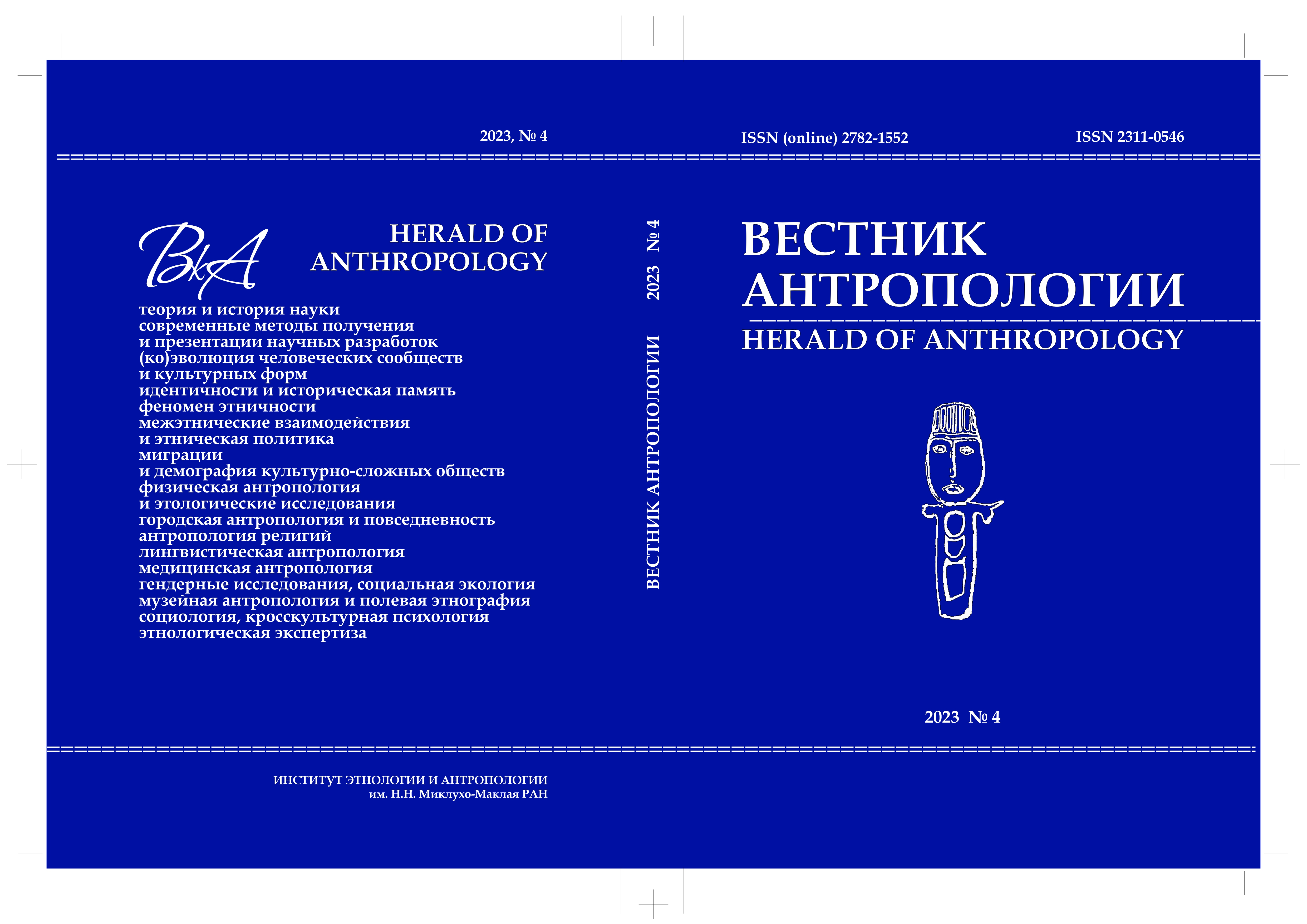The Historical Consciousness of Russian Peasants in the 19th – early 20th Centuries
DOI: 10.33876/2311-0546/2023-4/89-105
Keywords:
Russian peasants of the 19th–early 20th centuries, historical memory, national identity, outstanding personalities and bright eventsAbstract
The article considers Russian national identity and the role of historical memory in its formation. The historical ideas of the Russian peasantry of the 19th – early 20th centuries are described based on a wide range of historical and ethnographic sources. Peasantry is considered as the main carrier of ethnic traditions. The mechanism of collective memory formation is characterized. It is concluded that the views of the peasants on the history of the country and the world were manifested both in the characteristics of individual figures and in the identification of various eras and events of the past. The author shows the reasons why certain characters and facts stood out in the people's memory, how outstanding personalities influenced the self-consciousness of the people. The analysis of collective historical views not only captures the features of the folk version of the Russian past, but also reveals the main forms of Russian group identities – religious, state, ethnic and social ones. It was the nature of their interaction that determined the formation and specifics of national self-consciousness. National identity was closely connected with historical memory: in fact, in every region, local history was intertwined in the minds of people with national, personal and group memory fit into the context of the country's history, the so-called Big History. Despite certain local and confessional specifics, a basically single circle of historical events and facts has been preserved in the people's memory throughout the territory of the settlement of Russians. The commonality of historical ideas for many centuries contributed to the ethno-cultural consolidation of the Russian people.





















